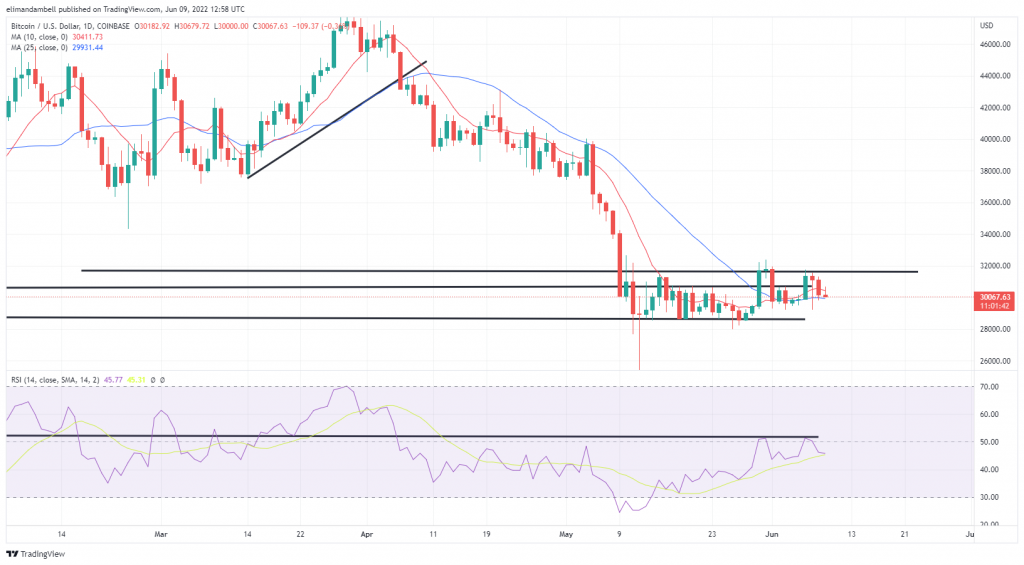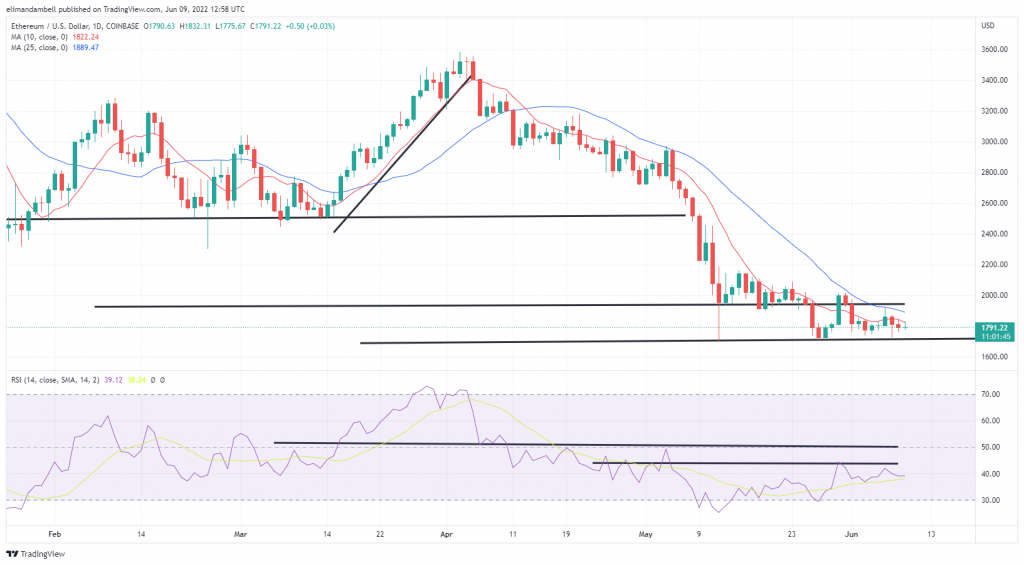
BTC was fighting to stay above $30,000 on Thursday, as markets prepare for the release of U.S. inflation data on Friday. Crypto prices mainly consolidated in today’s session, whilst ETH marginally slipped, falling below $1,800.
Bitcoin
Bitcoin was attempting to stay above $30,000 on Thursday, as traders began to anticipate the latest U.S. inflation report.
On Friday, the latest consumer price index (CPI) is expected to show inflation at 8.3%, which is still close to record highs.
Prior to the release of this, BTC/USD fell marginally lower on Thursday, hitting an intraday bottom of $30,015.98.

This move comes after bulls recaptured the $30,000 mark during yesterday’s session, however they have failed to extend these gains.
Some believe this may be a result of the upcoming CPI release, which has been a key economic indicator in recent months.
In addition to this, the 14-day RSI remains near its 45.50 floor, and should this continue to hold steady, BTC will likely stay above $30,000.
Ethereum
Thursday saw ETH also decline, as prices once again dropped below $1,800 due to the current uncertainty in markets.
Less than a day after trading at a peak of $1,862.91, ETH/USD slipped to an intraday low of $1,777.97 earlier today.
Prices have since climbed, moving away from the $1,750 support level, and as of writing are trading close to $1,795.45.

Ultimately the theme of consolidation is still present in ethereum, and like with BTC, this is likely due to upcoming economic releases.
Whilst crypto prices were not so exposed to such fundamentals in the past, due to the current economic downturn globally, traders are moving away from high-risk assets, and are using data like inflation to gauge the timing of potential investments.
Will we see ETH stay above $1,800 following tomorrow’s inflation report? Leave your thoughts in the comments below.
Image Credits: Shutterstock, Pixabay, Wiki Commons
Disclaimer: This article is for informational purposes only. It is not a direct offer or solicitation of an offer to buy or sell, or a recommendation or endorsement of any products, services, or companies. Bitcoin.com does not provide investment, tax, legal, or accounting advice. Neither the company nor the author is responsible, directly or indirectly, for any damage or loss caused or alleged to be caused by or in connection with the use of or reliance on any content, goods or services mentioned in this article.
Read disclaimer


